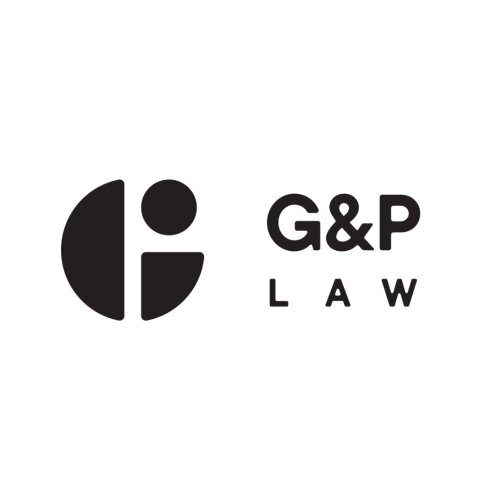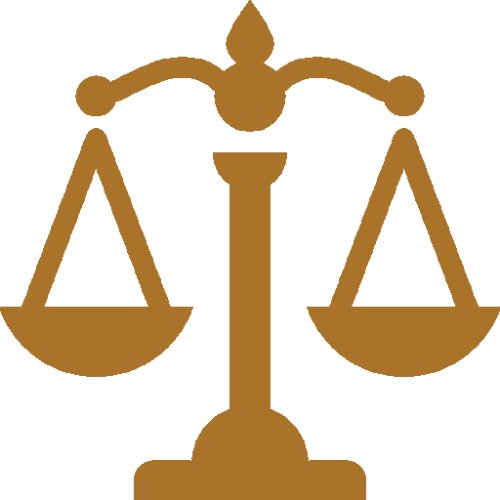Best Restructuring & Insolvency Lawyers in Sofia
Share your needs with us, get contacted by law firms.
Free. Takes 2 min.
List of the best lawyers in Sofia, Bulgaria
About Restructuring & Insolvency Law in Sofia, Bulgaria
Restructuring and insolvency law in Sofia, Bulgaria, governs the processes that individuals and companies must follow when facing financial distress, inability to pay debts, or the need to reorganize their business structures. This area of law is intended to offer legal frameworks that help debtors and creditors resolve debts in an equitable manner. In Sofia, both personal and corporate insolvency are handled primarily through court procedures, with the end goal of either recouping value for creditors or giving businesses a chance to recover through restructuring plans.
Bulgarian law provides clear steps for insolvency proceedings and restructuring, setting out the rights and obligations of all involved parties. This helps to ensure transparency and fairness during financial crises. Legal proceedings in Sofia adhere to the national Commercial Act (Targovski Zakon), which outlines how businesses can declare insolvency, propose recovery plans, or be liquidated if rescue is not possible.
Why You May Need a Lawyer
Navigating restructuring and insolvency cases is complex, often involving strict deadlines, detailed documentation, and negotiations with multiple stakeholders. Here are some common scenarios where the assistance of an experienced legal professional in Sofia is crucial:
- You are a business owner facing mounting debts or cash flow issues and need to explore your options for restructuring or insolvency.
- You are a creditor seeking to recover outstanding payments from a debtor declared insolvent in Sofia.
- Your company is subject to insolvency proceedings and you must protect your rights and interests during court-supervised processes.
- You need to develop or understand recovery plans and ensure compliance with Bulgarian commercial and insolvency law.
- You are a director or manager and want to prevent personal liability arising from insolvency or mismanagement during financial distress.
- You are an investor or purchaser interested in acquiring assets from distressed companies.
In all these cases, a specialist lawyer can provide clarity, representation, and help you navigate the legal complexities effectively, maximizing your chances for a favorable outcome.
Local Laws Overview
The legal framework for restructuring and insolvency in Sofia is mainly set out in the Bulgarian Commercial Act. Here are several important aspects to consider:
- Insolvency Proceedings: Initiated when a company cannot fulfill its monetary obligations or when its assets are insufficient to cover liabilities.
- Petition for Insolvency: May be filed by the debtor, a creditor, or by the National Revenue Agency in the Sofia courts.
- Appointment of a Trustee: The court appoints a trustee (syndic) to oversee the debtor’s assets and the proceedings.
- Stay of Enforcement: Once proceedings begin, enforcement actions and lawsuits against the debtor are generally suspended.
- Creditors' Claims: Creditors must submit claims within a set deadline. The trustee prepares a list of accepted claims for the court’s approval.
- Restructuring Plans: Restructuring (rehabilitation) plans can be proposed by the debtor, creditors, or stakeholders, aiming to restore viability and preserve jobs.
- Liquidation: If rehabilitation is not possible, the company’s assets are liquidated and the proceeds are distributed among creditors in order of statutory priority.
- Personal Bankruptcy: There is currently no comprehensive personal bankruptcy law for individuals other than sole traders, but legislative proposals are periodically considered.
- Director Liability: Company directors have specific obligations during insolvency and can be held personally liable for wrongful trading or failure to act in the company’s best interest.
Frequently Asked Questions
What is insolvency under Bulgarian law?
Insolvency is the condition in which a business or person cannot meet monetary obligations to creditors as they become due, or when their assets are insufficient to cover liabilities. Bulgarian law distinguishes between insolvency and over-indebtedness, both defined in the Commercial Act.
When should insolvency proceedings be initiated?
According to Bulgarian law, the debtor company or its creditors must file for insolvency once it becomes clear that outstanding monetary obligations cannot be paid as they fall due. Failing to do so may result in liability for company directors.
Can individuals declare bankruptcy in Sofia?
Currently, Bulgaria does not provide a comprehensive personal bankruptcy regime for individuals, except for sole traders and self-employed persons, who can initiate insolvency proceedings under certain conditions.
Can my company be restructured instead of liquidated?
Yes, Bulgarian law allows for restructuring (rehabilitation) plans, which can be proposed and approved during insolvency proceedings to help viable businesses recover, provided creditors agree and the plan is feasible.
What is the role of a syndic (trustee) in insolvency?
The syndic is an individual appointed by the court to manage and safeguard the debtor’s assets, represent the company during proceedings, review claims, and oversee liquidation or implementation of restructuring plans.
How are creditor claims handled?
Creditors must file claims within a specific deadline set by the court. The syndic reviews, accepts, or rejects claims, and prepares a list that the court then confirms or rejects, taking into account any disputes.
What happens if the restructuring plan is rejected?
If no restructuring plan is approved or the plan is unsuccessful, the bankruptcy court will order liquidation of the debtor’s assets and distribute proceeds to creditors according to the statutory order.
How long do insolvency proceedings in Sofia typically last?
The duration of insolvency proceedings in Sofia varies, depending on the complexity of the case, the number of creditors, and whether a restructuring plan is in place. It can range from several months to a few years.
What obligations do company directors have during insolvency?
Company directors must act in the best interests of creditors once insolvency is likely or declared. They have a duty to avoid actions causing loss to creditors and must not favor certain creditors over others.
Can foreign creditors participate in Bulgarian insolvency proceedings?
Yes, foreign creditors have the same rights as Bulgarian creditors in insolvency proceedings and may file claims, participate in creditor meetings, and receive distributions according to Bulgarian law.
Additional Resources
If you are facing restructuring or insolvency issues in Sofia, you may find assistance or additional information from the following resources:
- Sofia City Court (Sofiyski gradski sad) - The court responsible for hearing insolvency cases involving local businesses.
- Bulgarian Ministry of Justice - Provides information on relevant legislation and pending reforms in insolvency law.
- National Revenue Agency (Natsionalna agentsia za prihodite) - Involved in tax-related claims in insolvency procedures.
- Bulgarian Chamber of Commerce and Industry - Offers business advisory services and information on legal requirements.
- Bulgarian Bar Association - Can help you find a qualified restructuring or insolvency lawyer in Sofia.
Next Steps
If you are considering or involved in restructuring or insolvency matters in Sofia, Bulgaria, here are recommended actions:
- Gather all relevant financial documentation, contracts, and correspondence related to your situation.
- Seek an initial consultation with a lawyer specializing in restructuring and insolvency law to assess your options and legal position.
- Discuss possible outcomes, including restructuring plans, court proceedings, or negotiation strategies with creditors and stakeholders.
- Stay informed about legal deadlines and procedural requirements to avoid jeopardizing your rights or interests.
- Maintain clear communication with your legal advisor for guidance at every stage of the process.
Choosing expert legal support early can make a crucial difference in outcomes-ensure your interests are protected by working with a qualified restructuring and insolvency lawyer based in Sofia.
Lawzana helps you find the best lawyers and law firms in Sofia through a curated and pre-screened list of qualified legal professionals. Our platform offers rankings and detailed profiles of attorneys and law firms, allowing you to compare based on practice areas, including Restructuring & Insolvency, experience, and client feedback.
Each profile includes a description of the firm's areas of practice, client reviews, team members and partners, year of establishment, spoken languages, office locations, contact information, social media presence, and any published articles or resources. Most firms on our platform speak English and are experienced in both local and international legal matters.
Get a quote from top-rated law firms in Sofia, Bulgaria — quickly, securely, and without unnecessary hassle.
Disclaimer:
The information provided on this page is for general informational purposes only and does not constitute legal advice. While we strive to ensure the accuracy and relevance of the content, legal information may change over time, and interpretations of the law can vary. You should always consult with a qualified legal professional for advice specific to your situation.
We disclaim all liability for actions taken or not taken based on the content of this page. If you believe any information is incorrect or outdated, please contact us, and we will review and update it where appropriate.

















